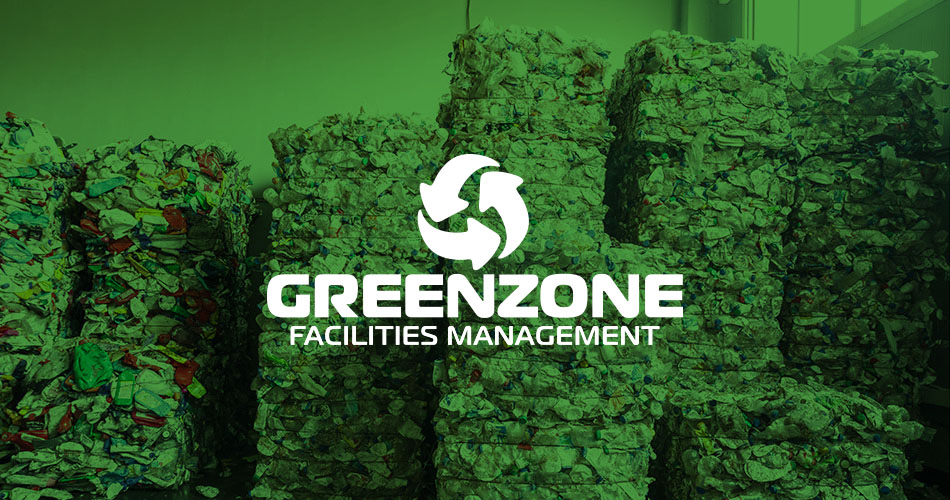Nation states and businesses had cried foul, claiming the targets were too exacting. Such lacklustre foot-dragging is sadly typical. So what disruptive measures might shake up the waste industry and trash the pessimism of those who fail to reform?
Circular rethink
If there’s one thing on which all waste experts will agree it’s that the linear make-use-dispose model on which we built our society needs ditching for good. It’s all about going “circular” these days. But weaving our economic systems into one harmonious, never-ending bundle of recycling and reuse is no easy task.
For starters, it means a massive overhaul in how waste is conceived. Even the word is loaded: “waste” isn’t actually wasted material, says Marcus Gover, director at the UK advocacy group WRAP, it’s a valuable commodity. And the first companies that need to recognise that are the waste (or should that be value?) management companies. By 2025, waste disposers “won’t be burying or burning people’s rubbish as they do today”, states Gover. These companies will merge into what he terms the “reprocessing industry”, where their central role is not to dump stuff but to return “valuable resources to manufacturers”.
A similar rethink is required of designers and manufacturers too. The goods of today, Gover says, need to be seen as the raw materials of tomorrow. When that happens, products will begin to be made with a view to lasting longer and to being easier to repair and ultimately dismantle. Phillips’ easy-to-disassemble lightbulb provides an illustrative case in point.
Turning waste into energy
Even if they do undergo this transformation, waste companies will still need business models that can turn a profit. One solution is turning waste into energy. According to market analyst Grand View Research, the global market for turning rubbish into power is expected to reach $37.64bn by 2020.
While most of the growth to date has been in thermal technologies, biological technologies could provide a major breakthrough. One advocate of the latter is Justin Keeble, managing director for sustainability services at Accenture, who points to a new generation of firms using 100% biodegradable feedstock and advanced biotechnologies.
Keeble’s list includes LanzaTech, an Illinois-based biotech firm that uses patented microbes to convert carbon-rich waste into biofuel via a gas fermentation technology. Another is Novozymes, a Danish biotech firm recently that launched Eversa, an enzyme-based solution that converts used cooking oil or other lower grade oils into biodiesel.
Ratchet up recyclability
Another hurdle for manufacturers is the recyclability of materials. Reusing a basic metal such as copper is easy enough (its dexterity is behind the spike in metal thefts). Recycling sophisticated plastics or other complex materials is a different ballgame.
Steve Lee, chief executive of the Chartered Institution of Wastes Management, gives the example of carbon fibre. On the one hand, it’s at the “cutting edge” of transport innovation, with the likes of McLaren and Airbus excited about its advantages in terms of strength, weight and energy efficiency. But little serious thought has gone into its re-use or recycling. Closing these “resource loops” is essential, he adds. “We will also need more clever technology to separate materials quickly and efficiently for recycling.”
Automating the selection of plastic from paper is one requirement, for example. Identifying one plastic polymer from another is critical too. In terms of the latter, near-infrared spectroscopy (PDF) could present an answer. Based on diffuse reflection, the technique enables unique polymer compositions to be distinguished based on their spectral differences.
Convincing consumers
It’s not just business that needs to change. Between now and 2025, public attitudes to waste require a radical overall too. Half of the food produced around the world ends up in the bin (PDF), according to the Institution of Mechanical Engineers.
Step forward smart cards. The institution’s head of environment and energy, Tim Fox, argues that smart measuring technology which charges consumers for the food waste they produce could change public attitudes sharpish. Pilots of the approach have already been successfully trialled in the South Korean capital of Seoul
.“Residents are given cards which include a chip holding the name and address of the cardholder. Residents scan their identification card, then dispose of their rubbish in a smart bin with a built-in weighing scale, and are simply billed for the corresponding waste”, he explains.
Retailer responsibility
Responsibility for consumer-related recycling shouldn’t fall entirely on consumer shoulders. Retailers that sell unrecyclable packaging should also make a change, argues Conrad MacKerron, director of the corporate social responsibility programme at the As You Sow Foundation. “Businesses responsible for those sales need to step up and take a strong measure of responsibility for financing collection and recycling of post-consumer packaging”, MacKerron states, noting that less than 14% of plastic packaging is currently recycled in the US.
He points to the Carton Council as a notable exception. The US industry association is providing grants for sorting-facility upgrades to make collecting aseptic and gable top cartons easier. The scheme also sees it provide technical assistance to material recovery facilities, as well as help to develop assured markets for aseptic fibre.
“The fast food, beverage, and consumer packaged goods sectors … must become actively involved in developing consensus on new, state-level producer responsibility mandates or equivalent policies”, he adds. “If brands fail to act then new producer responsibility mandates must be enacted.”
Orginal Source

